A tax haven or you may know it by offshore financial region is any country or jurisdiction that fosters minimal tax liability to any foreign individuals and businesses.
The distinctive thing about tax havens is that they do not require businesses to operate out of their country or the individuals to reside in their country to receive tax benefits.
Now let’s dig in and stick with us till the end, and by the time we are finished, you will have full fletched knowledge about the Tax Havens. You will know everything there is to know regarding the same.
Criteria for Tax Havens Jurisdictions
In the year 1998, the Organization for Economic Cooperation and Development (OECD) presented a number of factors to identify tax havens all around the world.
- Zero or just nominal tax charges on the relevant income
- Poor flow of effective information exchange
- Low transparency in the Jurisdiction
- No prominent substantial activities
Benefits to a Tax Haven Jurisdiction
The tax havens countries and jurisdiction leverage by attracting capital to their economic and financial institutions, which are then used to build a thriving financial sector. They provide a certain benefit to individuals and businesses as the tax rates are levied, which means savings on tax.
Tax havens are isolated regions and countries where filthy-rich individuals keep their money in offshore accounts for reasons which include tax avoidance and low tax rates. Individuals hold money in low shell companies formed under anonymous entities in remote locations.
World’s Top Tax Havens
1. The British Virgin Islands
The British Virgin Islands tops the list of the tax haven jurisdictions, currently holding 5000 times the value of its whole economy should hold. With a population of about 35,802 people, was among the 30 other countries which were blacklisted as a tax haven by the EU in the year 2015.
BVI offshore company pays exclusively zero income tax. Many taxes like BVI tax on capital gains, gift taxes, inheritance taxes, sales taxes, and value-added taxes are levied in the region. The government of the VBI is notably known for its stability, and they follow the British common law in the territory. Another advantage to offshore financial customers and offshore companies inculcated in the BVI is that there are no exchange controls on any transactional process. The Stamp duty charge is imposed on some transactions and there is a minimal payroll tax of between 10% and14%, split between employer and employee. This British territory BVI has ultra-modern company rules and regulations that have been extensively formulated to attract offshore investment form the investors all over the world. The British Virgin Islands (BVI) has an open economy that is booming mainly by the financial sector, as well as tax laws coupled with a strong regulatory network that highly favors doing any business in the territory. Richard Branson of the Virgin Empire is among the famous name being associated with the BVI.
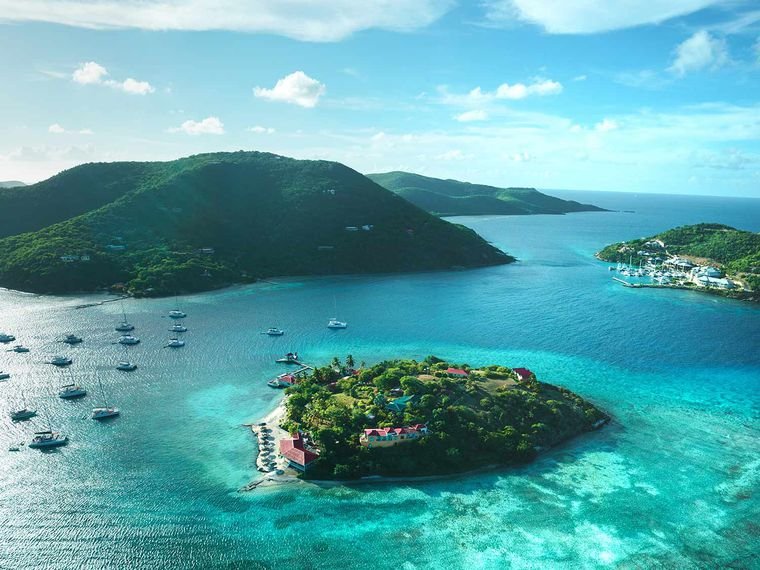
2. Taiwan
Taiwan is the new Switzerland for Asia, the country is attracting Asian money. Banks set up in Taiwan don’t tax foreign individuals and it is recognized as safe thus attracting not a signatory form OECD’s common standard. Taiwan meets the circle of being a highly stable and relatively well-governed state, another box checked in the tax havenry. In the year 2017, Taiwan was named a potential tax haven by the EU economical on the basis of the aforementioned criteria.
Although China claiming Taiwan as one of its territories, Taiwan claims itself to be an independent and stable state. Taiwan was also surprisingly absent from the list of 97 countries that have ever been involved in Global Transparency Standards. Which solely gives an edge for the strong credentials for the secrecy. On the contrary, Taiwan has been able to pull a blanket on all this, as the data available isn’t good enough for the process. However, based on the rough data range and suggested speculation if the secrecy score and sizable global scale weight is to be considered Taiwan makes it well in the list. The EU crossed off Taiwan from its blacklist in the year 2019 after it promised the make corrective reforms in the tax system.

3. Jersey
Jersey’s tax heaven journey gained a reputation in the year around the 1920s and kept booming ever since. Wealthy people from all around Brits began moving to the island, or in many cases just started transferring their wealth to the island, they were getting benefitted from the tax reform policies of the state. Wealth percentage was low and low inheritance taxes were the key point for the massive investment in the same timeline. The Tax network system in the state is ranked as one of the most hostile tax havens in the world.
Jersey is being used as the center of the money smuggling trade market from as early as the 17th century. The Jersey government introduced income tax reforms at the rate of 2.5% in the year 1928, which was later increased to 20% by the German Occupation Islands. The point worth noticing here is that island still does not have bequest, wealth, corporate, or capital taxes till now. As the wealthy individuals started filling the nation’s pool with money it gave a boost to the banking business of the island, as a result giving birth to one of the most aggressive offshore destinations for U.S dollars and other global currencies.

4. Bermuda
Bermuda’s tax haven network is a bit complex to comprehend. This British Island Territory, which has a population of about 71,000 people. The backbone of the country primarily is on insurance and other financial services. The complexity lies in the EU rating in this regard, as Oxfam named Bermuda as one of the world’s worst fiscal tax haven is the year 2016, and it was earlier among the 30 other countries which were blacklisted as a tax haven by the EU in the year 2015. Taxes on the other hand are relatively low in Bermuda, Payroll taxes are 4% from the year 2018 to 2019 for BMD48,000. BMD48,001 to 96,000 ranged from 6.50% in the year 2018 to 7.75% for BMD96,001 to 235,000. There is no corporate income tax in the country, and a company is considered a tax resident of Bermuda if it is instilled in the country itself. There is no taxation of investment in income and capital gains in the country. The elemental source of the economical backbone of the country is the Tourism industry accounting for 28% of the total gross. Statistics indicate clearly that around 80% of food is imported which gives another reason for the foreign industries to invest in the country and international business accounts for over 60% of Bermuda’s economic output.
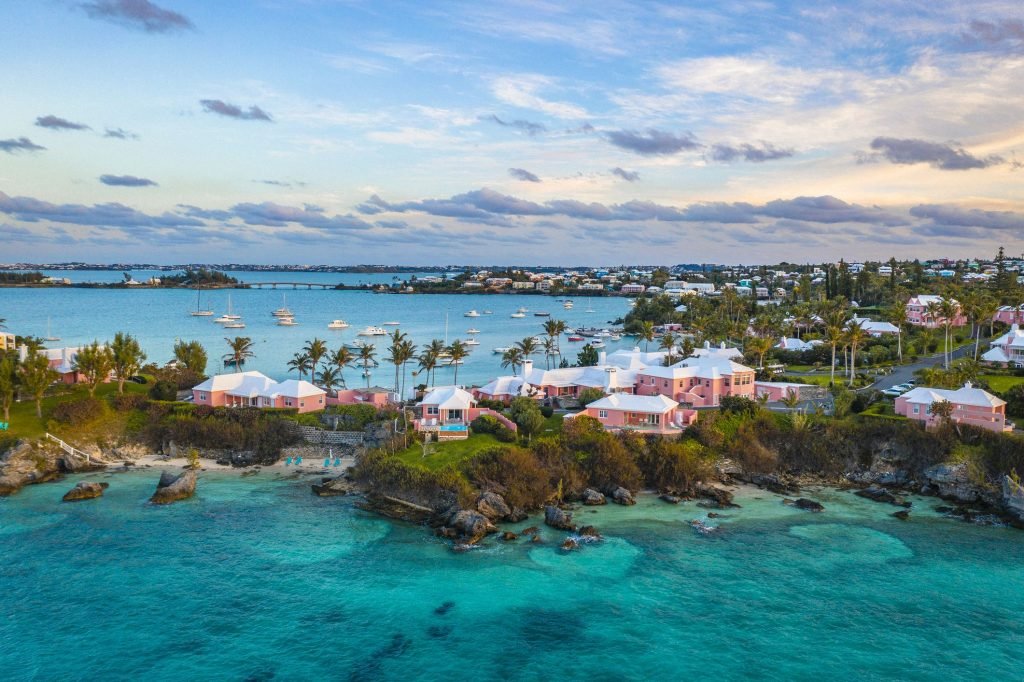
5. Cayman Islands
The Cayman Islands is among the world’s most infamous tax shelters, tax rates are evenly levied in the state. The Cayman Islands has no corporate tax, no capital gain tax, and no personal income tax, thus attracting foreign investment from all over the globe. In the year 2015 EU blacklisted 30 countries as tax haven centers and the Cayman Islands made the cut in this list. Cayman has no corporate tax, thus making it an ideal place for multinational corporations to base the subsidiary company, which shields the amount of the income generated from taxation. Inclusion to all this, the Cayman islands imposes no direct taxes on the individuals.
Instead of earning revenue directly through taxation, the Caymans earn revenue via earning and investment related to tourism and daily work permits, economical transactions, and direct and indirect import duties. Taxes are levied on most goods which are imported from all over the world, at a rate of about 225 to 27%. A tax haven in a nutshell is any location that has very lenient or minimal tax reform laws. Tax havens provide offshore financial services to foreign individuals and businesses that allow them to avoid paying hefty taxes in their countries of abidance. Shell corporations shield the company’s profits from the taxes and are therefore subject to the tax reform laws of the Cayman Islands rather than the United States thus reducing the imposed taxes close to zero. As a result of savings on hefty taxes, the Caymans have become a popular tax haven choice among the elite American and large multi-billion-dollar companies as there is no corporate or income tax imposed.
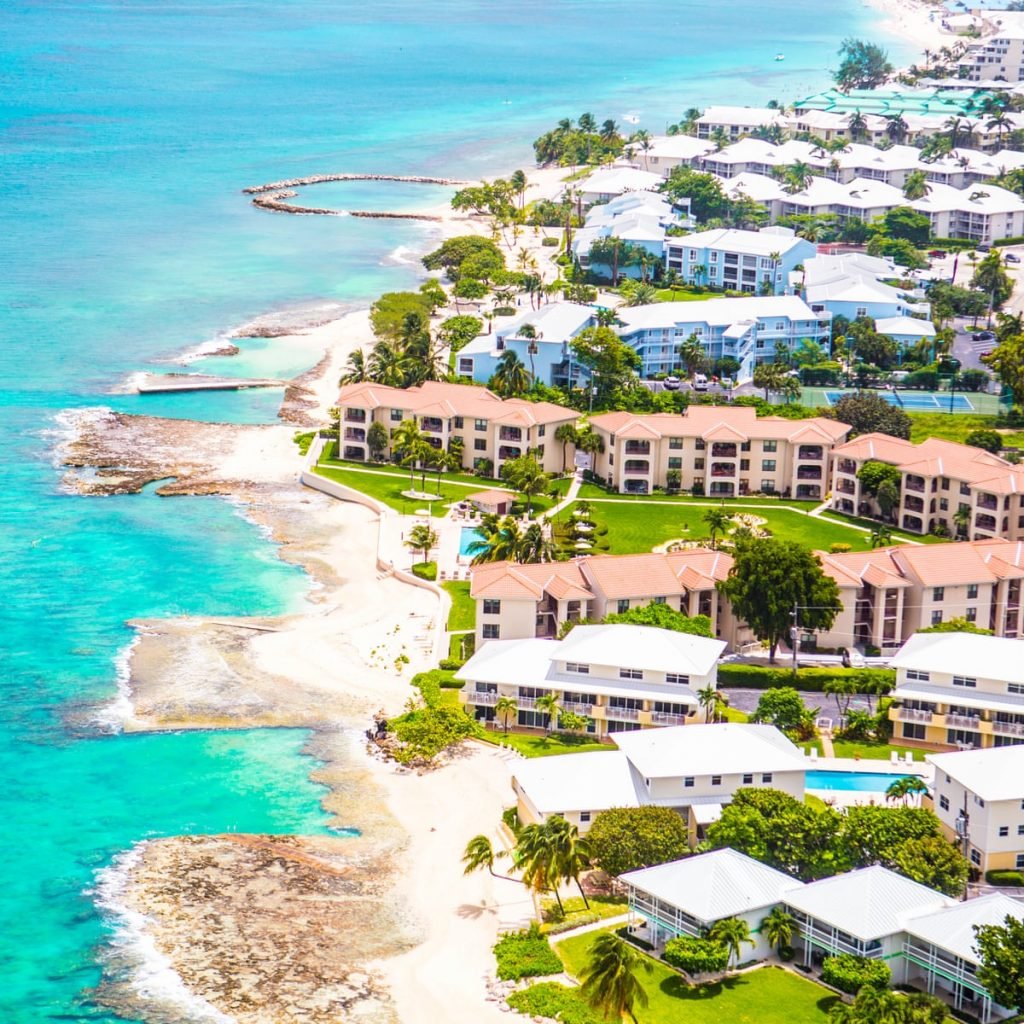
6. Luxembourg
Luxembourg has been a country of choice for firms and therefore the wealthy since the 1960s when the tiny European nation rose as a middle for the offshore trade of European bonds. Luxembourg was popular companies looking to issue debt because it lacked a withholding, didn’t require taxation, and didn’t require bond issuers to publish a prospectus.
Though Luxembourg incorporates a population of 600,000, it attracts the maximum amount of foreign direct investment (FDI) because of us. It’s $4 trillion in FDI that comes bent on $6.6 million per person. The International fund describes these inflows and outflows as “phantom investment.” Much of the money flows into empty corporate shells for the aim of minimizing the taxes of the entities that control the shells.
A favorable tax regime encourages corporations to ascertain special purpose entities in Luxembourg. One benefit is that the lack of withholding taxes on interest payments and royalty payments, which can allow these payments to flee taxation within the jurisdiction during which these receipts were generated.
Economists estimate that 80% of profits shifted from EU countries land up in tax havens located within the EU, namely Luxembourg, Ireland, and therefore the Netherlands. Luxembourg accounted for $47 billion in shifted profit in 2015. Ireland accounted for $106 billion and therefore the Netherlands accounted for $57 billion within the same year.

7. Isle of Man
The Isle of Man is situated within the sea between the islands of Great Britain and Ireland. it’s a territory of 572 square kilometers and a population of +/- 84,000 people. The Isle of Man could be a self-governing dependency of Brits Crown and citizens of the island have the status of British citizens. Brits Crown is entitled to intervene within the domestic affairs of the Isle of Man, to ensure ‘good government’ altogether Crown dependencies. Additionally, Brits Crown is to blame for the defense and external affairs of the island.
Scope of the taxation
The taxation applies to resident individuals additionally on non-resident individuals receiving Manx-source income. A Manx resident is a person who resides physically within the Isle of Man for an aggregate period of a minimum of 6 months in any tax year or resides there, on average, a minimum of 3 months annually over 4 years. Such a person is then considered a Manx resident from the fifth year onwards.
The taxable income
Personal income tax is levied on the worldwide income of Manx residents and the Manx-source income of non-resident individuals.
The following categories of income are exempt from tax: the capital element of a purchased life annuity, certain Social Security benefits, pensions in respect of employment or wartime disability, war widows’ pensions.
Rates of the private tax
Manx residents enjoy a private tax allowance looking at their status. for instance, a person doesn’t pay income tax on his/her first GBP 9,300 of income. With relevancy the taxable income, taxation is levied at a rate of 10% on the primary GBP 10,500 of taxable income and 20% on the remainder.
Maximum amount payable
Manx residents are susceptible to a limited amount of private taxation every year: an individual’s liabilities are capped at GBP 120,000 while married couples or civil partners have liabilities of GBP 240,000 if they choose joint assessment.
Other taxes
The Isle of Man imposes no capital gains tax, no wealth tax, no taxation, and no estate tax.
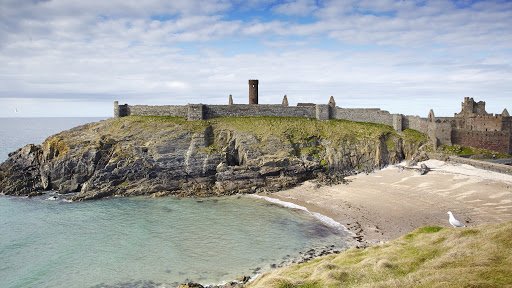
8. Ireland
Ireland has been labeled a country or corporate country in multiple reports, an allegation which the state rejects. Ireland’s base erosion and profit shifting (BEPS) tools give some foreign corporates Effective tax rates of 0% to 2.5% on global profits re-routed to Eire via their tax treaty network. Ireland’s aggregate Effective tax rates for foreign corporates are 2.2–4.5%. Ireland’s BEPS tools are the world’s largest BEPS flows, exceed the complete Caribbean system, and artificially inflate the US–EU deficit. Ireland’s tax-free QIAIF & L–QIAIF regimes, and Section 110 SPVs, enable foreign investors to avoid Irish taxes on Irish assets and may be combined with Irish BEPS tools to make confidential routes out of the country corporate legal system. As these structures are OECD–whitelisted, Ireland’s laws and regulations allow the employment of knowledge protection and data privacy provisions and opt-outs from the filing of public accounts, to obscure their effects. there’s arguable evidence that Ireland acts as a Captured state, fostering tax strategies. Ireland is on all academic “tax haven lists”, including the Leaders in-country research, and tax NGOs. Ireland doesn’t meet the 1998 OECD definition of a country, but no OECD member, including Switzerland, ever met this definition; only Trinidad & Tobago met it in 2017. Similarly, no EU–28 country is amongst the 64 listed within the 2017 EU country blacklist and greylist. In September 2016, Brazil became the primary G20 country to “blacklist”.
Ireland as a country
Ireland’s situation is attributed to Political compromises arising from the historical U.S. “worldwide” corporate legal system, which has made U.S. multinationals the most important users of tax havens, and BEPS tools, within the world.[f] The U.S. Tax Cuts and Jobs Act of 2017 (“TCJA”), and move to a hybrid “territorial” legal system, removed the requirement for a few of those compromises.
In 2018, IP–heavy S&P500 multinationals guided similar post-TCJA effective tax rates, whether or not they are legally based within the U.S, or Ireland (e.g. Medtronic[h]). While TCJA neutralized some Irish BEPS tools, it enhanced others (e.g. Apple’s “CAIA”. Reliance on U.S. corporates (80% of Irish corporation tax, 25% of Irish labor, 25 of the top 50 Irish firms, and 57% of Irish value-add), could be a concern in Ireland.

9. Bahamas
The Commonwealth of the Bahamas owes its state status to its tax- and business-friendly laws for foreign investors. this is often because citizens of the Bahamas and resident aliens pay no taxes on income, inheritance, gifts, or capital gains. Instead, the govt. derives revenue from other types of tax, including excise (VAT), property taxes, stamp taxes, import duties, and license fees.
The Bahamas is a world center for banking activities that attract foreign financial institutions thanks to its reputation for stability. A commonwealth of the Bahamas has governed the island nation continuously since 1729. The Bahamas also are the third-wealthiest country within the New World, after the U.S. and Canada, with a per-capita GDP of $32,217.90 as of 2018,8 and their official language is English.
More than 250 banks and trust companies representing 25 countries are licensed to try and do business within the Bahamas. Bahamian laws protect the proper to the privacy of bank clients. Strict Bahamian laws also prohibit illicit financial activity, like concealing. The financial organization of The Bahamas regulates foreign financial entities by providing a secure environment for banks specializing privately in banking, open-end investment company administration, and portfolio management.

10. Cyprus
The island of Cyprus officially lost its status as a state when the Organization for Economic Cooperation and Development (OECD) declared the country, together with Luxembourg and Seychelles, had been found to be largely compliant with standards set forth by the worldwide Forum on Transparency and Exchange of data for Tax Purposes.1 The rating is the same as that given to us, Germany, and therefore the UK.
Beginning shortly after the autumn of the Berlin Wall, the govt. of Cyprus established its country as a state, specifically targeting Russian oligarchs, also as Eastern European civilians and firms. The country’s low flat corporate charge per unit, strict privacy laws, and geographic desirability thanks to its proximity to Europe and Russia helped to extend the recognition of the state over the subsequent three decades. As a result, the industry boomed in Cyprus, growing to become nine-fold larger than the country’s economy by 2009.
KEY TAKEAWAYS
• Cyprus lost state status when the OECD gave the country an identical rating because the U.S., Germany, and the U.K.
• Cyprus’s increase in corporate tax rates to 12.5% was a part of the explanation it’s not considered a state.
• Cyprus also initiated participation within the Automatic Exchange of monetary Information in Tax Matters.
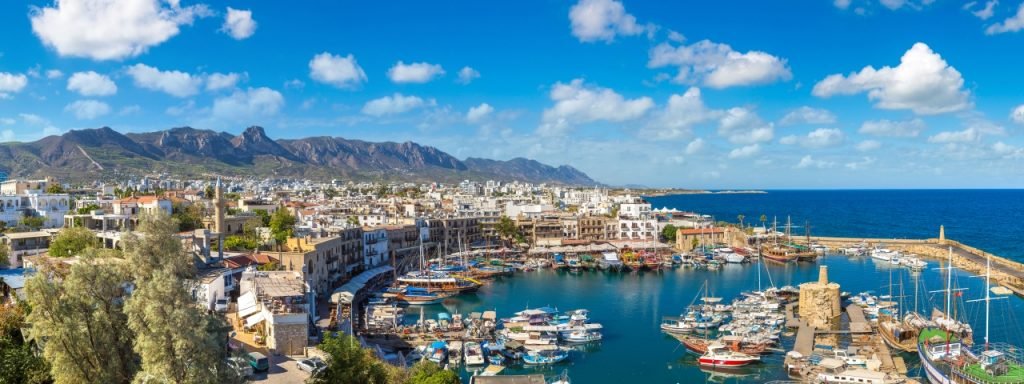
11. Belize
Many wealthy individuals and companies use tax havens to legally filter and shell out their tax liabilities. Normally present offshore, these states, territories, and countries tend to be politically and financially stable. Although some tax havens pass on a small fraction of details to (foreign) tax authorities, there are plenty of places that don’t share any information at all and maintain complete privacy with other international corporations. Belize is a tax haven that allows individuals and corporations to legally filter and reduce their tax liabilities for any professional or non-professional purpose. Incorporating offshore companies is completely and explicitly legal and is simple in Belize thanks to the tax forum policies of the International Business Companies Act. Belize does not share any information with international tax regulating authorities, providing corporations and individuals with utter confidentiality.
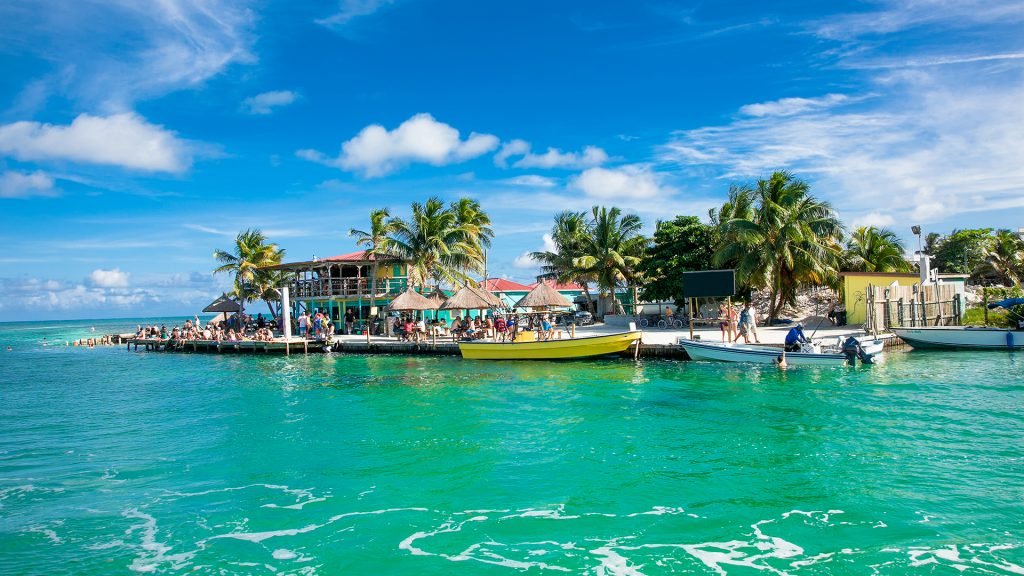
12. Panamas
The Commonwealth of the Panamas rugs of its tax haven status to its tax and tax reform laws for foreign investors. This is because people of the Panamas and residents of other countries pay no taxes on personal income, inheritance, gifts, or capital gains. On the contrary, the government generates revenue from other forms of tax, including value-added tax (VAT), property taxes, stamp taxes, import duties, and license fees. The Panamas is an oversees center for banking activities that lure foreign financial and economic institutions because of its reputation for stability and low tax reform policies. Parliamentary democracy of the Panamas has ruled the island state since early. Citizens of the Panamas don’t pay for taxes on income, inheritance, gifts, or capital gains. The Panamas government uses revenue from several sources like VAT and stamp taxes. Strict laws are restricting illicit and illegal financial activity such as money laundering. The Panamas offers foreign corporations seeking a tax haven the convenience and accessibility of easily establishing and growing up a business entity.

Credit by- Animesh Singh

https://www.linkedin.com/in/animesh-singh-a840ba165/
Credit by- Saptarishi Banerjee
















